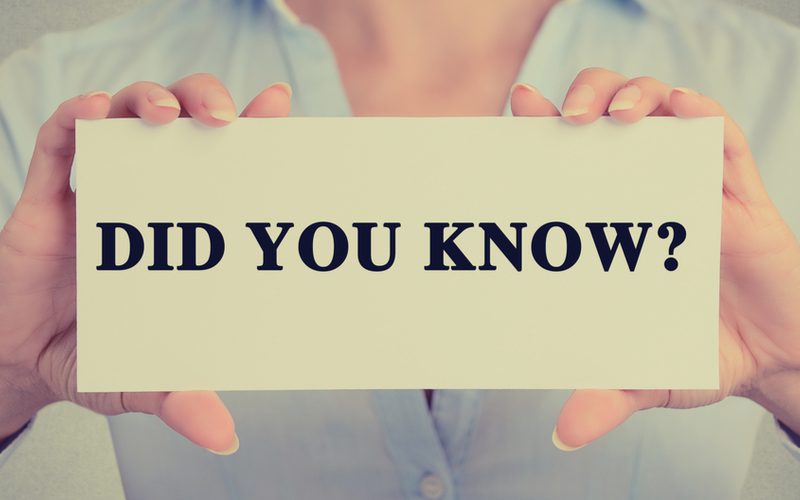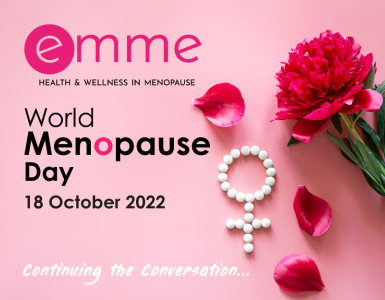A woman is officially said to be in her menopause when she hasn’t had a period for 12 months
But the lead up to the menopause (a time called the perimenopause when the body produces less oestrogen, a female sex hormone) and recognising menopausal symptoms can be a tricky time when you feel alone, confused and just not yourself. So here’s our lowdown and everything you need to know about the menopause.
What’s the average age of the menopause?
There’s no set age for the menopause, but the average age for British women to experience the menopause is 51 years old. Some women do experience their menopause much earlier – an early menopause is classified as a menopause that occurs between the ages of 40 and 45.
Premature menopause is classified as a menopause that occurs in a woman below 40 years old. This is more likely if you have family history of premature menopause, or if you’ve had certain cancer treatments or surgery to remove your ovaries.
The perimenopause is common in women during their 40s as their hormone levels begin to drop in preparation for the menopause. This means that women can experience symptoms similar to the menopause during the perimenopause from their early 40s.
What symptoms might I experience during the menopause?
Not all women experience symptoms of the menopause but around 75% do. Some women may experience one or two, others more, and different women experience different symptoms to varying degrees.
The symptoms of the menopause include:
- Irregular periods
- Very heavy or very light periods
- Hot flushes
- Night sweats
- Low mood
- Anxiety
- Reduced libido (sex drive)
- Vaginal dryness
- Painful sex
- Difficulty sleeping
- Problems with memory recall
- ‘Brain fog’
- Joint pain
- Headaches
- Hair loss
- Weight gain
- Recurrent urine infections
- Brittle bones
Should I see my GP?
If your menopause isn’t causing you symptoms that bother you, then there’s no need to see your GP.
However, if you’re suffering, equally there’s no need to do it alone!
Your GP can help and may prescribe Hormone Replacement Therapy (HRT) if you both think its suitable (they will discuss everything with you, based on your symptoms and individual health circumstances).
HRT works by replacing the lost oestrogen to help manage the symptoms low oestrogen levels cause.
If you’re under 45 and you think you might be menopausal, your doctor can carry out a series of blood tests to check your hormone levels. A woman over 45 demonstrating menopausal symptoms won’t necessarily need blood tests, as it can be assumed that she’s entering her menopause, but it is important to run through your symptoms with your doctor to ensure there isn’t any other cause of your symptoms.
Can I treat my own symptoms?
Some women choose not to take HRT, or it isn’t suitable for them, but some of the symptoms of the menopause can still be managed without it.
In fact, managing the symptoms of menopause as best you can with a healthy lifestyle will benefit women whether on HRT or not!
Here’s some lifestyle changes you could make to help manage your symptoms:
- Eat calcium rich foods to help keep bones and joints strong
- Low sugar foods can help keep your mood and sleep patterns more stable
- Probiotic rich foods such as kimchi and kefir can help to keep the gut healthy and in turn help to boost your mood
- Avoid caffeine, alcohol and spicy foods to help keep hot flushes and night sweats at bay
- Avoid alcohol where you can to help promote better, more restorative sleep
- Naturally phytoestrogen rich foods such as soy and oats can help to manage symptoms by mimicking the action of oestrogen
- Carry out regular exercise to help keep your bones and muscles strong helping to prevent falls and fractures later in life
- Herbal supplements such as red clover, dong quai and black cohosh may help, but there is still little evidence as yet through scientific studies that these are effective
Remember that your GP can help, and if your symptoms, in particular a low mood or anxiety, are getting you down, they can discuss the possibility of antidepressants with you.
















